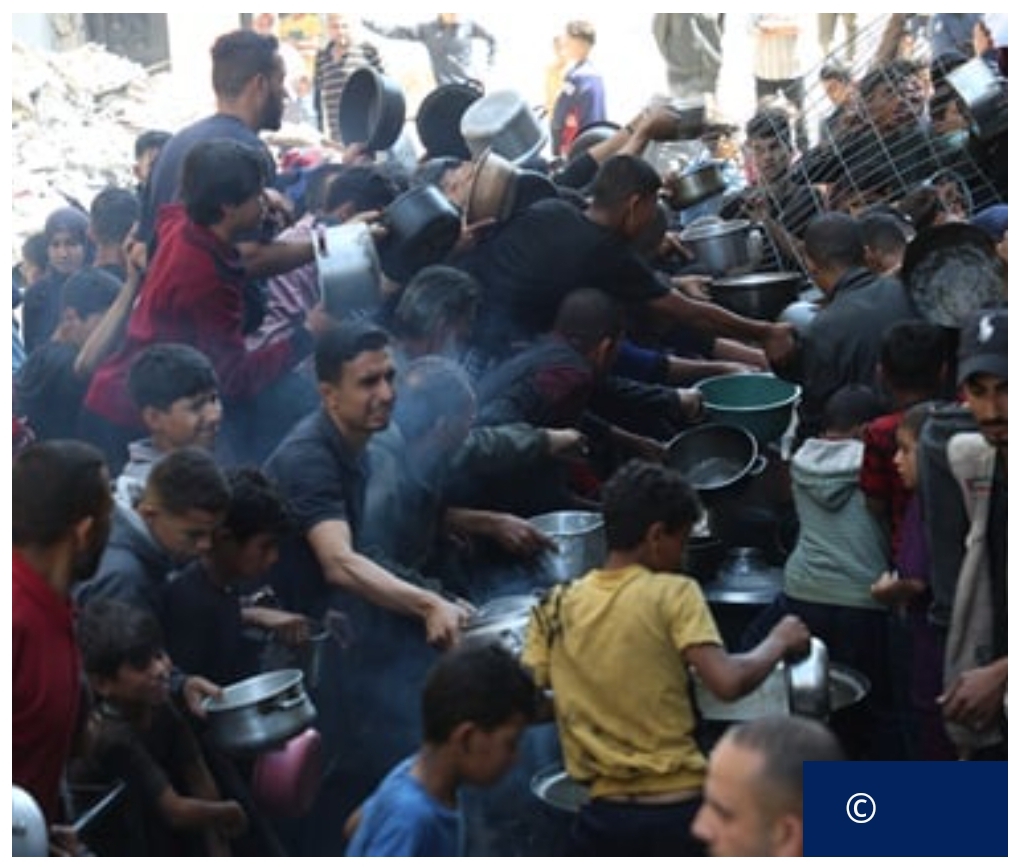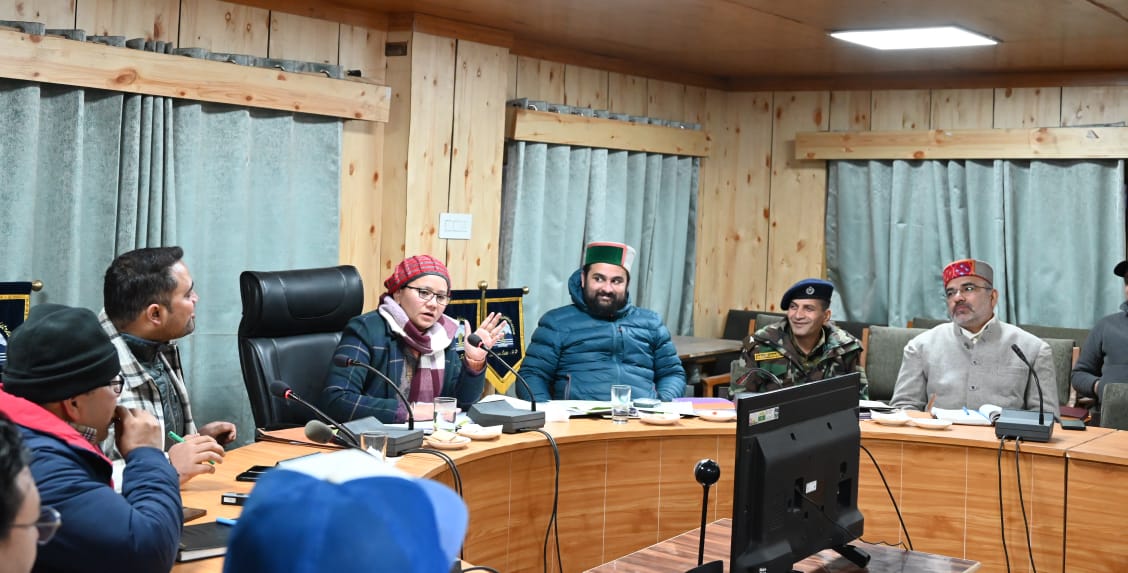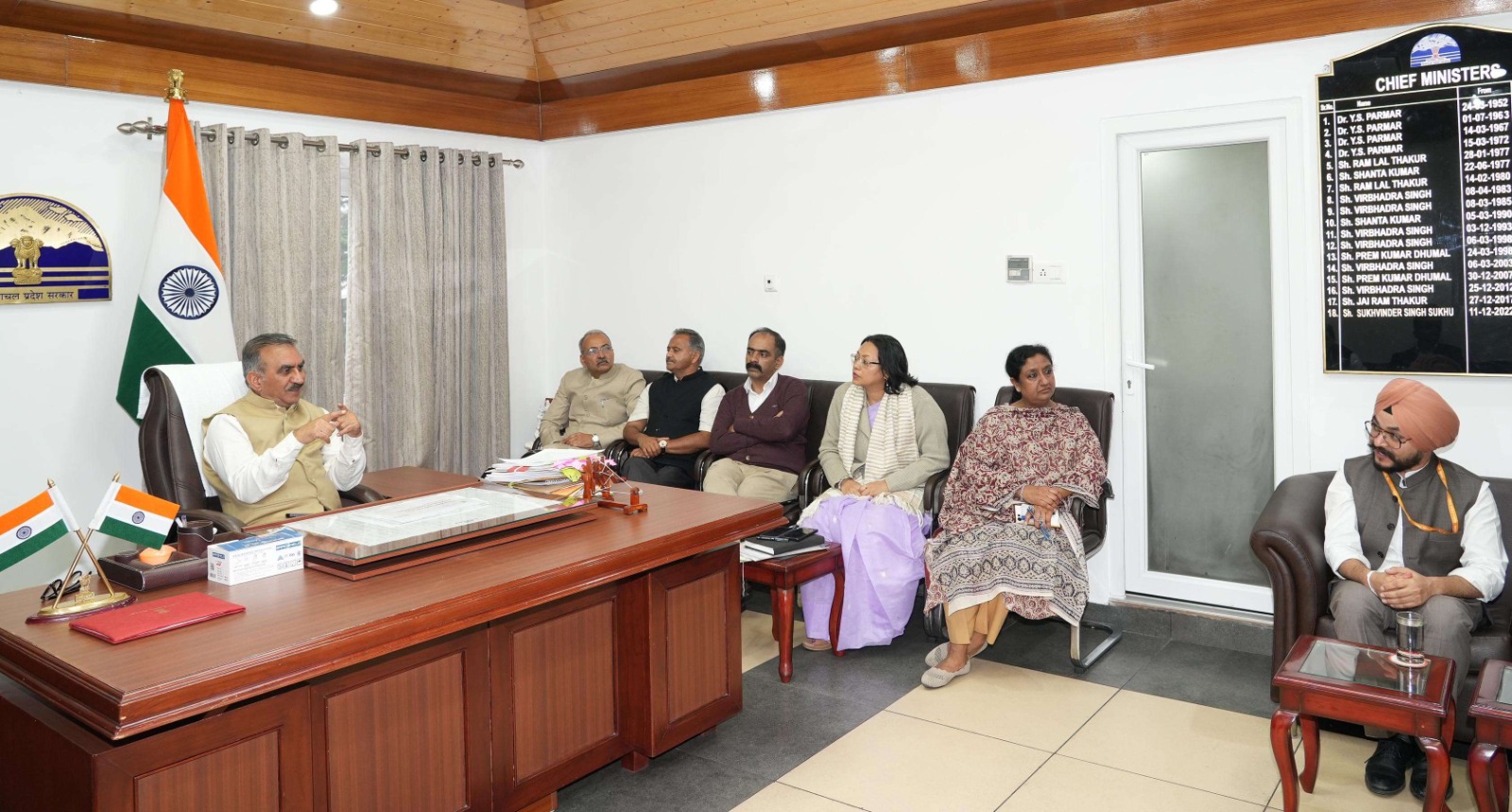Gaza on Brink of Famine as Aid Blockade Starves Over Two Million, Warns WHO.
Gaza:
The World Health Organization (WHO) has issued a stark warning that Gaza is edging dangerously close to famine as the ongoing blockade continues to deliberately withhold humanitarian aid, including food and medical supplies. According to the latest Integrated Food Security Phase Classification (IPC) analysis released today, nearly half a million people in Gaza are already enduring catastrophic hunger and acute malnutrition — the highest levels of food insecurity measured.
WHO Director-General Dr. Tedros Adhanom Ghebreyesus called for urgent and unfettered humanitarian access to the besieged region. “We do not need to wait for a declaration of famine in Gaza to know that people are already starving, sick, and dying, while food and medicines are minutes away across the border,” he said.
Since the tightening of the blockade on March 2, 2025, the humanitarian crisis in Gaza has deteriorated rapidly. The report reveals that three-quarters of Gaza’s 2.1 million residents are now facing “Emergency” or “Catastrophic” food insecurity — the most severe categories on IPC’s five-point scale. This makes Gaza one of the world’s worst hunger crises unfolding in real time.
Children and Mothers Hit the Hardest
The IPC report warns that the number of children dying from malnutrition is rising, with at least 57 children reported dead so far—a figure likely underestimated. If the situation remains unchanged, nearly 71,000 children under the age of five are expected to suffer from acute malnutrition over the next eleven months.
Pregnant and breastfeeding women are also severely affected, with over 17,000 projected to require urgent treatment for malnutrition. With limited food, clean water, and healthcare, malnourished mothers struggle to produce breast milk, leaving their infants vulnerable to disease and death in an environment where access to safe feeding alternatives is almost nonexistent.
Malnutrition in children leads to long-term and often irreversible consequences, including stunted growth, impaired brain development, and chronic health problems. These outcomes threaten not only the present survival of Gaza’s children but the long-term well-being of an entire generation.
Health System on the Verge of Collapse
Healthcare access has been critically compromised. WHO reports that it can no longer adequately support the 16 outpatient and 3 inpatient malnutrition treatment centres operating in Gaza due to the blockade. Essential supplies are dwindling, and stocks remaining within the enclave are only enough to treat 500 children suffering from acute malnutrition—a fraction of the need.
Moreover, limited access to clean water, collapsing vaccine coverage, and the spread of preventable diseases such as measles and diarrhoea are worsening the crisis. Malnutrition weakens immunity, and diseases increase nutritional needs, creating a deadly feedback loop that is disproportionately impacting children.
Humanitarian Access Blocked
Despite Israeli authorities’ announcement of new distribution plans for aid within Gaza, WHO and other UN agencies say these measures fall far short of what is needed to avert widespread famine. WHO emphasizes that food and medical supplies are ready and waiting just outside Gaza’s borders, but the blockade is preventing their delivery to those in desperate need.
Dr. Tedros called for the protection of healthcare, the immediate end of the aid blockade, and the upholding of core humanitarian principles: “People are dying while life-saving medical supplies sit just outside Gaza—ready for deployment. We must uphold the principles of humanity, impartiality, independence, and neutrality and allow the UN-led humanitarian system to function fully.”
A Call for Ceasefire and Peace
In addition to calling for unimpeded humanitarian access, WHO reiterated the UN’s broader call for the release of all hostages and the establishment of a ceasefire leading to lasting peace. “This blockade is starving people, obstructing their right to health, and robbing them of dignity and hope,” Dr. Tedros stated.
With every hour that passes, the window to prevent full-scale famine in Gaza is closing. WHO and its partners urge immediate international action to avert further loss of life, uphold human rights, and ensure that critical health and nutrition needs are met without delay.



